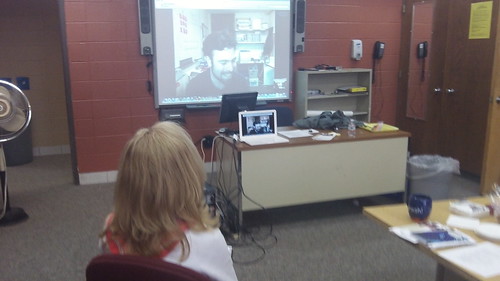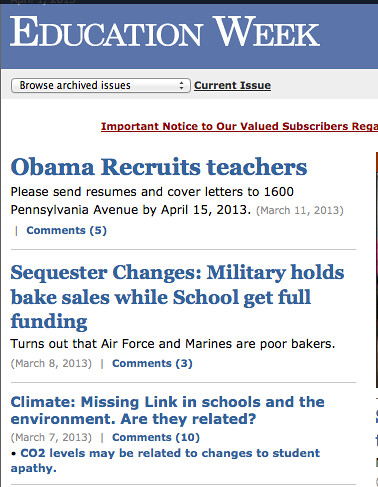Our Western Massachusetts Writing Project is in the midst of a year-long inquiry around digital literacies. It began back in the fall with a running theme through our Best Practices conference, and has continued with a few inquiry sessions with our WMWP leadership team. The other day, I facilitated a Hackjam session, as a way to get us talking and thinking about the hacking and remixing culture of young people and how it might connect to school-based learning.
We began with an activity away from the computer. I call it Hacking the Writers, a version of Hacking the Poster that I did at the National Writing Project meeting (thanks to Chad Sansing and Andrea Zellner). I brought in a poster that I have of cartoon characters of famous writers (the poster is very funny in itself) and handed out sticky notes and said, add your own comments to the poster. The room got sort of silent, so I wasn’t sure what to expect. But soon enough, there was a lot of laughter going on and the poster got hacked.
Next, we had the privilege of having Rafi Santo skype into our meeting for about 40 minutes. Rafi has done some very interesting work around “hacking literacies” and the consideration of systems, and how to think about participatory media in a meaningful way. (We all read a piece by Rafi about hacking literacies to set the stage — you can find a link to the article here). Rafi was wonderful, helping to open up some eyes around why teachers should be considering this topic. His talk moved from social justice issues (giving power to change the media message and the issue of access) to the reclaiming of the word “hacking” as a positive endeavor to a rationale for at least understanding the technology we use on a daily basis. The topics of privacy and ownership were also featured.
My hope had been that Rafi would establish a case for why we should care, and use, hacking literacy ideas in the classroom, and he did so in a meaningful way.
Next, I introduced two tools: one was the Lego Gender Remixer, which allows you to remix Lego commercials in order to uncover marketing techniques. The other was the Hackauraus XRay Goggles, which is a hacking tool that allows you to hack websites (not really — it is an overlay) and craft new messages. We went into Education Week and hacked our own messages about teaching, and you should have heard the giggling and chatting that was going on in the room. There was excitement about some easy tools that would help students and teachers understand the larger concepts.
These kinds of sessions help lay the groundwork for consideration of our classroom. I don’t expect hacking to suddenly explode in their schools. But getting situated on the possibilities, and flipping the concept to a positive idea around empowerment of student voice, is a step in the right direction.
Peace (in the hack),
Kevin

